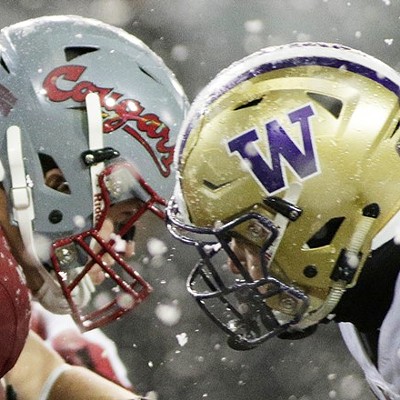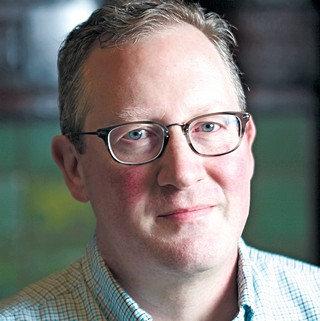"We the people of the United States..." So starts a story that continues to be written every day. Along the way, there have been ups and downs, war and peace, heroes and kooks, but we have generally worked, for 237 years now, toward a more perfect union. I think it's because of that one word at the start of the Preamble to our Constitution: "We."
That's a powerful name to encompass common cause, shared prosperity and the whole being bigger than the parts. United we stand.
Somehow "We" has given way to "Me," however, leading to a big "Sorry, We're Closed" sign hanging over our nation today.
But the "Me" was there at the start, too, right in the Declaration of Independence, Thomas Jefferson's indictment of royal, decadent Europe. That's where he threw down the then-revolutionary notion that all men hold "certain, unalienable Rights" of "Life, Liberty and the pursuit of Happiness."
Of course Jefferson added, "to secure these rights, Governments are instituted among men," but everyone likes to remember the "Liberty" part most of all. We've even got a whole Statue of Liberty devoted to "Me."
So our my-way-or-the-highway politics aren't a complete surprise: It's "Me" on the steroids of unlimited election spending and endless campaigns. It's Thomas Wolfe's "Me Generation" finally putting the "Boom" in Baby Boomers. And if this was a movie, the catchphrase could be: "Works for me!"
The father of our country worried about the "Me" — especially in the form of me-first factions that we call political parties. He hated them. Parties, George Washington warned in his Farewell Address, can "become potent engines, by which cunning, ambitious, and unprincipled men will be enabled to subvert the power of the people and to usurp... the reins of government..."
Sound familiar?
Maybe America needs therapy? Psychoanalyst Viktor Frankl survived the Holocaust, so he viewed America as the hero — even as he saw our inner conflict. He analyzed our character in Man's Search for Meaning. "Freedom," he wrote, "is not the last word. Freedom is only part of the story and half of the truth. Freedom is but the negative aspect of the whole phenomenon whose positive aspect is responsibleness. In fact, freedom is in danger of degenerating into mere arbitrariness unless it is lived in terms of responsibleness."
Degenerating into arbitrariness? Um, we're already there, Doc.
Perhaps a Statue of Obligation could remind us that balance is the key to America — between the freedom and the responsibility, the "Me" and the "We." Until then, it's left to the vast majority of us who live that balance to embrace and defend that crucial little word: "We." ♦





















